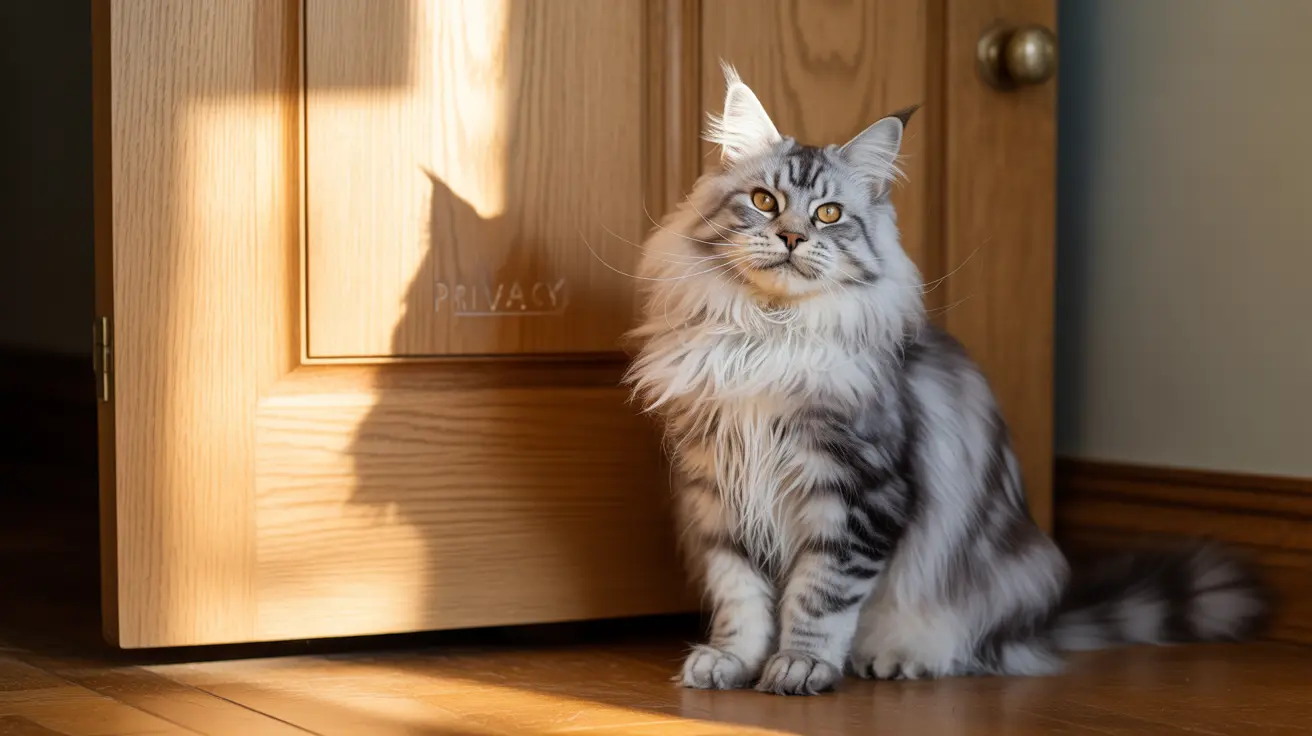The Instinctive Drive Behind Door Guarding
Cats are naturally territorial creatures, and doors represent important boundaries in their domain. When your cat guards a door, they're often expressing their innate desire to control and monitor access points within their territory. This behavior stems from their wild ancestors, who would guard den entrances to protect their families and resources.
Modern house cats maintain these protective instincts, even in the safety of our homes. They view doorways as strategic observation points that allow them to monitor both sides of their territory while maintaining a tactical advantage.
Social Bonding and Protection
Many cats guard doors out of a deep emotional attachment to their human family members. This behavior often intensifies when they perceive their humans as vulnerable, such as during bathroom visits or sleep. Your cat might see themselves as your dedicated protector during these moments.
This protective behavior can also be a demonstration of social bonding. Cats in the wild would look out for their family members, and your domestic cat is simply extending this courtesy to their human family.
Understanding Your Cat's Door Monitoring Habits
Cats may display different types of door guarding behaviors, each with its own significance:
- Sitting quietly and observing
- Pawing at the door
- Vocalizing or meowing
- Lying across the threshold
- Rubbing against the doorframe
These variations in behavior can indicate different motivations, from simple curiosity to more complex emotional needs.
Attention-Seeking and Resource Control
Sometimes, door guarding is simply a learned behavior. If your cat has discovered that sitting by a door results in attention, treats, or playtime, they'll likely repeat this behavior. In multi-cat households, door guarding can also become a way to control access to resources or assert dominance over other cats.
Addressing Door Guarding Behavior
While door guarding is typically harmless, there are times when you might want to modify this behavior:
- Provide alternative observation points with cat trees or window perches
- Establish regular play and interaction schedules
- Create enriching environments throughout your home
- Use positive reinforcement to encourage desired behaviors
- Consider leaving some doors open when possible
Frequently Asked Questions
Why does my cat guard the bedroom or bathroom door so closely?
Cats often guard bedroom and bathroom doors due to a combination of protective instincts and attachment behavior. They may feel vulnerable when separated from you and want to maintain proximity to ensure your safety and their access to you.
Is my cat guarding the door because of territorial behavior or attachment?
It can be both. Territorial behavior and emotional attachment often overlap in cats. Your cat may be protecting their territory while simultaneously expressing their bond with you through proximity and vigilance.
How can I tell if my cat's door guarding is due to separation anxiety?
Signs of separation anxiety include excessive vocalization, destructive behavior when separated, and visible distress when doors are closed. If your cat shows these symptoms along with door guarding, consult with your veterinarian.
What does it mean when my cat blocks the doorway and won't let me pass?
This behavior could be attention-seeking, territorial assertion, or simply your cat's way of maintaining control over their environment. If it becomes problematic, redirect their attention with toys or treats.
How can I gently discourage my cat from guarding or blocking doors?
Provide enrichment activities away from doors, establish regular feeding and play schedules, and create comfortable resting spots throughout your home. Never punish door guarding; instead, reward desired behaviors and locations.
Conclusion
Door guarding is a complex behavior that reflects your cat's natural instincts, emotional attachments, and environmental awareness. While usually harmless, understanding the underlying motivations can help you better address your cat's needs and strengthen your bond. Remember that each cat is unique, and what works for one may not work for another when managing this behavior.






